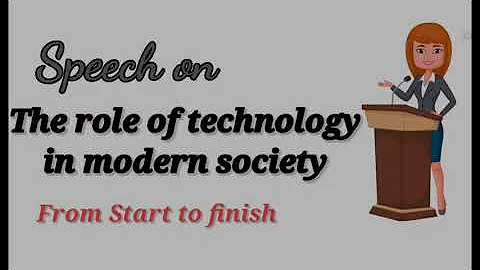
Why is there technology but no science in history?
Text: Li Shenzhi
Notes: In 1979, Li Shenzhi accompanied Deng on his visit to the United States. There was an important conversation on the plane:
Li Shenzhi asked Deng: "Why do we attach so much importance to relations with the United States?"
Deng replied: "Looking back over the past few decades, all countries that have established good relations with the United States have become rich. Get up."
Nowadays, Sino-US relations have fallen into the "Thucydides Trap", and the United States is even using the power of its "core technology" to fight a "stuck" war.
At present, how to break through "core technology" has become a hot topic among the people. As a thinker who connects the past with the future, Mr. Li Shenzhi has extremely profound insights into the issue of "path dependence", which is still alarming to read today:

Just read Feng Shize's article about the British Lord Acton who said "power corrupts people", It said:
The great May Fourth Movement warmly welcomed Mr. Desai II, more than seventy years ago. If you think about it seriously, I think we have always had science, including the traditional period, although it is not as developed as the West (if not, where did Needham start writing that masterpiece?)... Democracy is in China's technological culture. No trace...
After reading it, I couldn't help but be surprised. Why did the "May Fourth" sage easily overturn one of the two major flaws in Chinese traditional culture that he discovered only after decades of exploration by predecessors after "serious thinking". Comrade Feng Shize was my friend, so I immediately called him and told him that he was wrong. Not only did he follow the good advice, but he also asked me to write an article to correct his misjudgment.
Why is it said that there is no science in traditional Chinese culture?
Among the ancient cultures in the world, only Greek culture has science and democracy since the so-called "Axial Age" at the beginning of civilization. Others such as Indian culture, Chinese culture, and the older Egyptian culture, the oldest Su There is no culture in Meier. This is common knowledge in world history.

▲The ancient Greek mathematician Pythagoras
Joseph Needham praised the technological inventions in Chinese history (I remember that article specifically mentioned that the Chinese invented the stirrup , which unites man and horse as one, which is of great significance to civilization. ), but his general conclusion is that there is “technology but no science” in Chinese history.
Why do you say there is no science in China? The reason is very simple:
First, China has not developed a set of scientific theories based on strict logical reasoning, which is updated day by day;
Second, China has not developed mathematics as a common language for all sciences.
This statement is convincing once you read it.
When Euclid invented geometry with rigorous reasoning, China only had the divination book "The Book of Changes", but now it is promoted as the "Yuan Canon", the ancestor of science.

▲Euclide and "Elements of Geometry"
Mathematics has certainly existed in China since ancient times. To give an example, every carpenter who wants to make a round table knows the "three diameters per day". The accuracy of the pi calculated by Zu Chongzhi is said to be hundreds of years earlier than that of Europeans.
But China never had geometry. "Arithmetic" has always been considered a "unique knowledge" in China, that is, knowledge that cannot be passed down. Often a "genius" appears and then another "genius" appears a few years later, and the "secret is not passed down". ", or even further develop it, and then it becomes a "unique skill".
is so repeated that there is no inheritance system that can be expressed in words.And these people we recognize as "geniuses" today have no status at all in the eyes of sages, ministers, literati and bachelors of all dynasties. They are just "techniques" or "magic numbers".
There are four great inventions in Chinese history, which have been praised by the world, especially the Chinese people, since modern times. Joseph Needham also diligently discovered many inventions for us Chinese that are ahead of other countries in the world, which greatly enhanced the ambition of the Chinese people. However, most Chinese people cannot tell the difference. It turns out that most of the Chinese inventions are technology and rarely science.

▲What Ming Dynasty scholar Song Yingxing recorded in "Tiangong Kaiwu" is all technology, and rarely science.
However, the sages of the late Qing Dynasty such as Liang Qichao and Yan Fu understood this, and the sages of the "May Fourth Movement" such as Chen Duxiu and Hu Shi understands this. The reason why the latter want to loudly support Mr. De (democracy) and Mr. Sai (science) is because China’s extensive and profound five thousand years of culture does not have these two treasures.
They all want to introduce these two completely different concepts into China and enlighten the Chinese people. They don't know that the Chinese people don't appreciate it. The word "academic" has not been distinguishable for thousands of years. Even after ten years, I still can’t tell the difference.
Not only that, China also invented the word "technology", which is popular everywhere, such as "high technology", "high technology" and so on. Combining "science" and "technology" is actually confusing "science" and "technology" without distinguishing them.
Such confusion is extremely harmful. At least true scientific concepts cannot be imported, and true science cannot be promoted.
Wu Dayou, the dean of Taiwan's "Academia Sinica" Wu Dayou said in the article "The Reasons Why Our Country's Science Has Lag Behind the West in the Past Hundreds of Hundreds":
●Unfortunately, we coined the term "technology" in modern times. The difference between the two is an important point in the issues we are currently focusing on. For example, our exploration is motivated by seeking knowledge and "seeking truth." It often starts from some ideas in boundless fields and continues to be implemented according to logic. This is the essence of "scientific" exploration. If there are specific problems and exploration with specific goals, we call it "technical research." The intelligence required for each stage of research is not fundamentally different, but the goals and methods of exploration are different.
●Although the results of scientific development may greatly improve our material life, the main driving force of scientific researchers is mostly not aimed at material gain. The main difference between scientific research and technological research is that the former is not limited by predetermined goals, but moves forward endlessly in pursuit of knowledge.
Mr. Wu considers it "unfortunate" that the Chinese invented the term "technology", and his feelings are very deep.

▲Mr. Wu Dayou
I asked friends who can be called "Japan experts" and asked them whether there is the word "technology" in Japan, which also belongs to the Chinese cultural circle. The answer is "no", there are only "science" and "technology" Two words.
Mr. Wu Dayou has also read Joseph Needham's "History of Chinese Science and Technology", but his feelings after reading it were different from most of us who "feel patriotism spontaneously" after reading it. Instead, he felt "slightly uneasy." "These comparisons may give some Chinese people a basis for pride and pride, thinking that our nation has been ahead of the West in science and technology for a long time, but has only lagged behind the West in the past few hundred years."
Mr. Wu went on to talk about the difference between science and technology. . What he did not say is: Chinese academics have been talking about "the study of pursuing goodness" from the very beginning. Everything starts from " should be " and comes down to "should be". "What is" is not taken into consideration. ; Western academics are "truth-seeking studies" and everything starts from "what is" and is verified by "what is".The driving force behind Western scholarship is the so-called “intellectual curiosity.” The highest level of Chinese academics, from Confucius said that "Yao and Shun were as good as others in cultivating oneself and bringing peace of mind to others" to the Confucianism of the Song Dynasty that "the laws of nature prevail, and there is no selfishness at all". It has nothing to do with "seeking knowledge".
At the beginning of this century, there were already leading figures in the ideological circle who distinguished between what is science and what is technology. Later, their Chinese masters and "Mr. Antiques" such as Wang Guowei and Chen Yinke have always lamented that "Chinese people are too practical and not theoretical."
Unexpectedly, less than eighty years after the May Fourth Movement, a lot of science and technology were imported, and people gradually became accustomed to it and lost the correct observation and profound understanding they had at the beginning. Especially in the past 20 to 30 years, two bombs have gone up in the sky, high-rise buildings have risen from the ground, and computers and mobile phones can be seen everywhere. China seems to be a "technological power", but few people know that "technological power" is anything but. "A scientific power".
My impression is that at the beginning of this century, science and technology, which the Chinese had a hard time distinguishing clearly, became blurred again by the end of this century.
Looking back on the past, what we feel ashamed of the "May Fourth Movement" forefathers is that we have not met their expectations of us in both democracy and science. However, we don’t have to feel inferior because of this. Because although Greek culture had its unparalleled glory in ancient times, those who inherited and promoted it turned out to be barbarians with little cultural foundation, that is, the Germans who constitute the main body of the so-called Westerners today.
In this era of globalization, there are no insurmountable difficulties for us Chinese to catch up with the West. What's more, we have some scientific accumulation today. All we need is a thorough awareness and the consensus of the whole people. "Knowing shame is close to courage." What we fear most is "arrogance and self-rejoicing" that comes from ignorance.





















